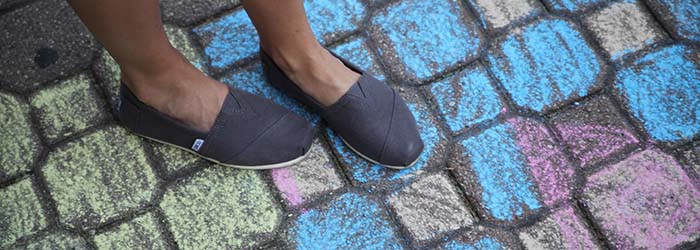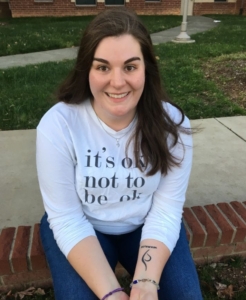Shifting My Perspective on Recovery
While some of us may share an eating disorder diagnosis, every person’s eating disorder is different. Each one has different contributing factors. Each one started at a different time in our lives. Some people’s eating disorders go on for a long time before being diagnosed. Some people do not go to treatment for a long time if at all. So if every person’s process of developing an eating disorder, and having an eating disorder are different, then it’s understandable that every person’s recovery will look a little different as well.
Eating disorders tend to be quite competitive. In treatment and with before and after pictures, there tends to be an emphasis placed on who’s the sickest, and that can be really dangerous for many reasons. Recovery, on the other hand, can also be competitive. Comparing who has been behavior free the longest, who is doing the most mental health advocacy, and what their life in recovery really looks like.
Lately, I have noticed myself comparing my recovery to others. I was behavior free for over a year, and then last October I had a slight relapse. I remember initially being really ashamed and in denial of my relapse. I know from personal experience and from watching others that relapses are more often than not a part of recovery. However, as usual it seemed as though I had set the bar higher for myself.
Since then I’ve noticed a shift in my outlook on recovery. While of course someday I hope to be behavior free long-term again, it’s okay that right now I’m not. That doesn’t mean that I’m not doing well in recovery; it means that I’m still navigating my eating disorder recovery. Although I haven’t had an eating disorder since I was a kid, I have had a challenging relationship with food since then. Something that deep doesn’t go away quickly. Even with treatment, a great support team, and lots of resources, it still takes time to heal that deep of a wound.
So instead of placing a lot of importance on the number of days, weeks, months, or years I have been behavior free, I have tried to focus more on my daily accomplishments and consistent effort. For example: having lower behavioral urges, a positive body image day, viewing food as fuel rather than emotional support, or how much I worried about whether or not other people were judging my food choices. I have found that focusing on these continues to help me figure out which aspects of my recovery I need to work more on.
Another thing I’ve been trying to keep in mind is that everyone has different things going on in the rest of their lives, and of course that impacts their recovery. Everyone will have periods of time when they’re struggling and then when they’re doing better.
It’s okay if your recovery looks different than someone else’s. It’s okay if you’ve been behavior free for less time than someone else. That doesn’t mean that you are lesser than them. That doesn’t mean that you don’t work as hard as them. That doesn’t mean that you are a failure at recovery, and it doesn’t mean that you’ll never get to the point of being behavior free for a long time.
Even if you don’t feel like you’re doing your best, the fact that you’re trying is an accomplishment in itself. You’re still here and you’re still fighting. At the end of the day, that’s what matters. Recovery is a difficult journey; it takes a lot of hard work, several baby steps, and an immense amount of strength.
For recovery resources and treatment options, please visit our resource center. If you or someone you know is struggling with an eating disorder, call ANAD’s Helpline at: (888) 375-7767 or the National Alliance of Eating Disorders Helpline at: (866) 662-1235.
If you are thinking about suicide, call or text the National Suicide Prevention Lifeline at 988. In crisis situations, text “NEDA” to 741741 to be connected with a trained volunteer from the Crisis Text Line.
Emily Locke is a college student, writer, and dancer. She is from Portland, OR but attends North Carolina State University, and plans to major in English with a creative writing concentration. She has battled mental illnesses from a young age, and as a result is very passionate about raising awareness for eating disorders, anxiety and depressive disorders, and promoting a positive body image. She is currently a NEDA column writer, and hopes to someday be a published author, and eating disorder activist. To read more of her writing and follow her journey, check out her blog.





